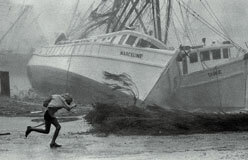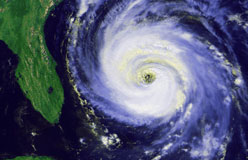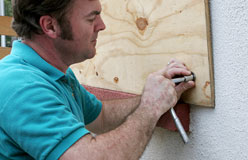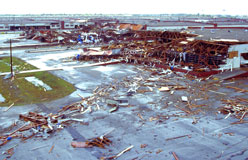Over the years, the number of people killed by hurricanes has dropped, largely thanks to the federal government’s early warning system. People now take these storms seriously.
While fewer people are killed, the cost of hurricane damage has risen. That’s because the number of people living along the 2,000-mile stretch from Texas to Virginia has almost doubled since the 1930s.






